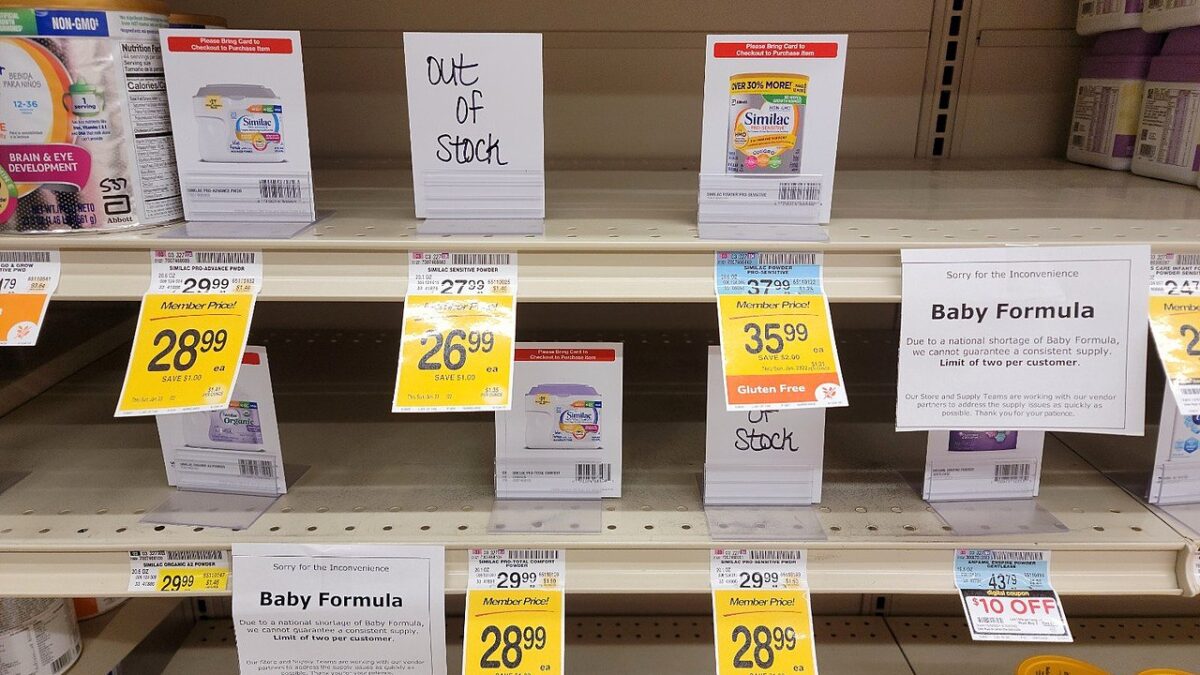The Trump administration’s economic successes, including historic tax and regulatory reforms, will save working families trillions of dollars in the coming decades. Misguided rules that redistributed resources from millions of consumers to the connected few are quickly going by the wayside, keeping households and businesses free from red tape. Thanks to low tax rates, businesses of all sizes are booming, unemployment is nearing record lows, and American families are seeing more money in each of their paychecks.
Additionally, the administration is understandably trying to hold China accountable for stealing American intellectual property from the United States, to the tune of $225 to $600 billion annually. In a misplaced effort to send a strong message that the U.S. will not tolerate this type of behavior, the administration imposed tariffs on more than $50 billion worth of Chinese goods. But while these tariffs were meant to strike a blow to the Chinese economy, this trade war is having serious consequences on American business owners, consumers, and charitable organizations.
The administration has recently proposed a new set of tariffs that will levy a 25 percent tax on an additional $16 billion worth of Chinese imports. This is on top of the hundreds of billions of dollars worth of tariffs already imposed on the Asian nation. Many of the items set to be taxed are craft supplies — like yarn and fleece — that are purchased from China and sold in U.S. stores. Crafting is a huge industry in the United States. In 2016, the craft industry accounted for $44 billion in economic activity. But if these new tariffs are imposed, the entire sector could be in danger.
In testimony given before the U.S. trade representative’s office on Thursday, Jill Soltau, CEO of Joann Fabric and Craft Stores — the country’s largest supplier of craft supplies — explained the harm these tariffs could cause:
The resulting tariffs on these targeted products will cause substantial harm to our customers, our employees and the economy as a whole. Our customers, many of whom are nonprofit organizations and small businesses which operate on tight budgets and retirees who are on fixed incomes, could not tolerate the increased pricing resulting from the tariff costs.
The products cited by Soltau are overwhelmingly used as inputs into finished products for consumers. These products are then sold at farmers markets or sites like Etsy, or donated to charitable organizations. Goods are also bequeathed to military veterans, the hospitalized, the poor or the underprivileged.
But if these tariffs cause the cost of supplies to increase, many of these entrepreneurs will be unable to make their finished products. And many charities will be unable to afford their typical quantity of donations.
Prior to Soltau’s testimony, Joann’s sent out an email asking its customers to sign a petition opposing Trump’s new tariff plan. This marks one of the first instances of a company directly asking its customer base to oppose a presidential policy, speaking to the seriousness of the situation.
In addition to harming consumers, many craft stores are small mom-and-pop establishments that can’t afford to pay more for their supplies. If these tariffs are approved, these companies will have to choose between raising their prices or laying off employees to make up the difference. This could ultimately result in many smaller businesses being forced to shut their doors. Even larger companies like Joann’s fear what might happen if these new tariffs are adopted.
Continuing her testimony, Soltau noted:
Because demand for our products would decline, we would suffer from lower sales and earnings and would need to lay off as many as 2,000 employees, or almost 10% of our workforce. If, instead, we absorbed all or a portion of the tariff costs, we would also realize lower earnings which would lead to the same store closings and job layoffs. We support the President’s overall efforts to improve the balance of trade with China. Yet, targeting fabric and craft components is not the appropriate solution.
Like many Americans, Soltau understands the need to take a strong stance against China. But if these tariffs continue to harm American consumers and business owners, then any further escalation of this trade war is not in the country’s best interest.









